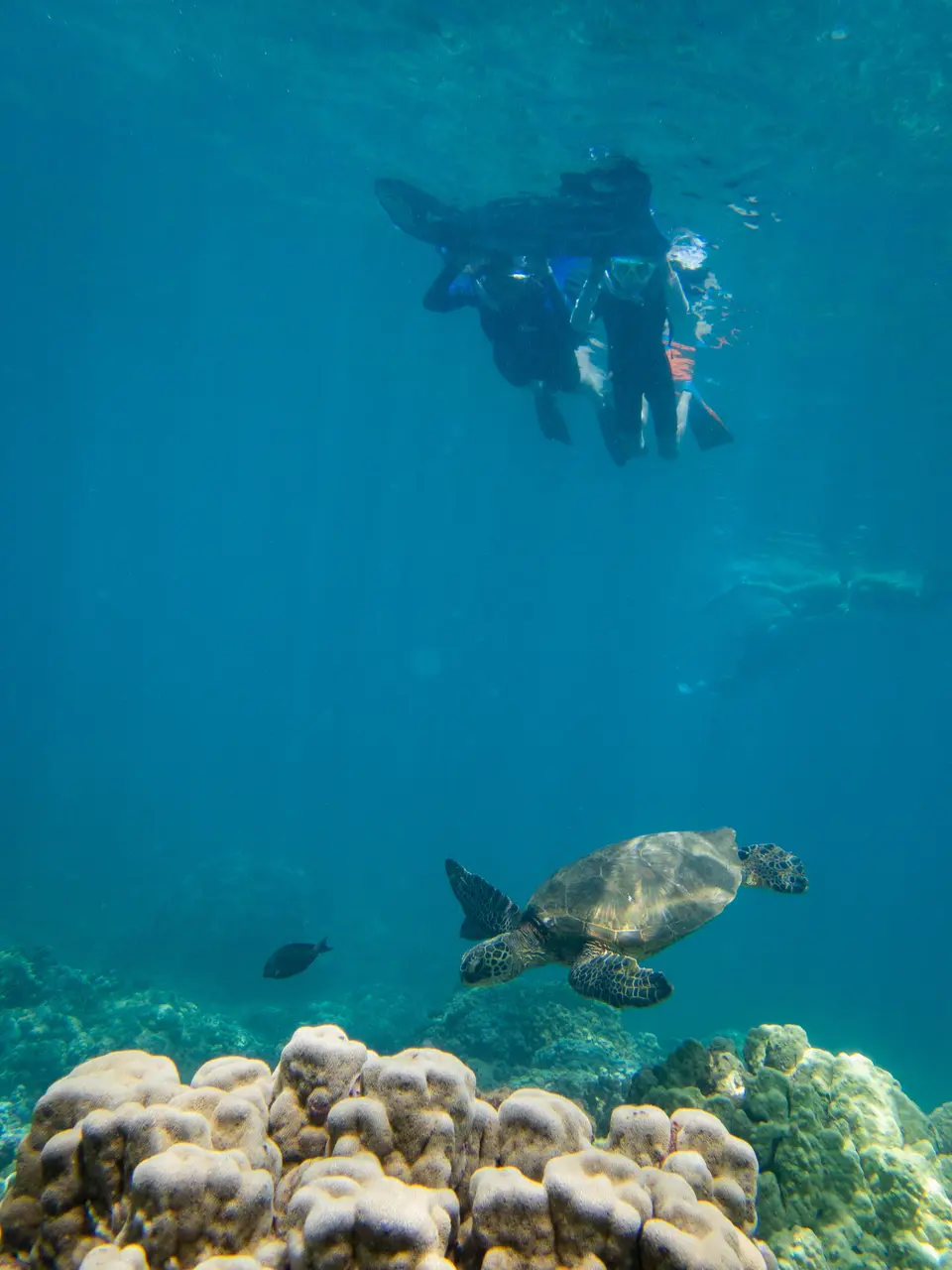Snorkeling for Beginners: Understanding Marine Life and Preserving Our Oceans
Introduction to snorkeling: A beginner's guide
Snorkeling is a fun and easy way to explore the underwater world. It allows you to see colorful fish, beautiful coral, and other marine creatures up close. Before you start snorkeling, it's important to know the basics. Snorkeling is the practice of swimming on or through a body of water while equipped with a dive/snorkel mask, a breathing tube called a snorkel, and usually swimfins or snorkel fins.
Here are some key points to keep in mind as you begin your snorkeling adventure:
Check your equipment: Make sure your mask fits snugly and your snorkel is in good condition.
Practice proper breathing: Breathe calmly and deeply through your snorkel tube.
Stay calm and relaxed: Try to conserve your energy and enjoy the experience.
Respect marine life: Be mindful not to disturb the underwater ecosystem.
Stay safe: Always snorkel with a buddy, have a safety or flotation device, and avoid hazardous conditions like strong currents or high waves.
By following these tips, you are on your way to a safe and enjoyable snorkeling experience as a beginner.
What equipment do you need for snorkeling?
To enjoy snorkeling, you'll need basic equipment such as a mask, snorkel, and fins. Your mask should be sized properly and have a snug fit to prevent water from leaking in, and the snorkel lets you breathe while floating face-down in water. Fins help you move efficiently in the water. Apart from these, wearing reef-safe sunscreen to protect your skin (and the marine life), and a rash guard for sun protection and warmth is essential. Optional equipment includes a wetsuit, snorkeling vest, float belt, or boogie board for buoyancy, and have a plan for your belongings such as a safe place or a water proof bag. Prioritize comfort and quality to have a great snorkeling experience while respecting marine life. It is important to use quality equipment whether renting or purchasing.
Safety tips for beginners
When starting out in snorkeling, the most important thing is safety. Here are some essential tips to keep in mind:
Check conditions before heading out. If you are not from the area talk to someone who is and has knowledge of the water and beaches.
Make sure your snorkeling gear fits properly and is in good condition.
Always snorkel with a buddy and never stray too far from each other.
Be aware of your surroundings and watch out for boats and other watercraft.
Practice proper breathing techniques to avoid any breathing difficulties underwater.
Avoid touching or disturbing marine life, and never harass any creatures you encounter.
Stay hydrated and protect yourself from the sun by wearing reef-safe sunscreen and a rash guard.
Talk to your Dr if you have any medical concerns BEFORE you snorkel.
By following these safety tips, you can enjoy a fun and safe snorkeling experience while helping to preserve our oceans.
How to choose the best snorkeling spots
When choosing snorkeling spots, look for places with clear waters and diverse marine life. Here are some tips to help you select the best spots:
Research the area to find renowned snorkeling locations.
Consider the time of year for optimal visibility and marine activity.
Check if the spot offers guided tours or equipment rental.
Ensure safety by choosing spots with calm waters and minimal currents.
Respect marine life and the environment by following local guidelines and not disturbing the ecosystem.
Happy snorkeling!
Understanding marine life while snorkeling
When snorkeling, you have the opportunity to see an array of marine creatures up close. Fish of various colors, coral reefs, and even sea turtles might cross your path. You might be surprised by the diversity and beauty of the marine life just beneath the ocean's surface. It's a chance to witness the wonders of the ocean firsthand and gain a new appreciation for the importance of preserving our oceans.
Ways to preserve marine life and protect our oceans
To help preserve marine life and protect our oceans, there are simple actions you can take. Reduce, reuse, and recycle to minimize waste that ends up in the water. Always clean up after your self when leaving the beach. Avoid using single-use plastics, straws, and opt for reusable items whenever possible. Support organizations and initiatives that focus on ocean conservation. Educate yourself and others about the importance of marine life and the impact of pollution. Participate in beach cleanups to prevent litter from harming sea creatures. Remember, even small efforts can make a big difference in preserving our oceans.
Importance of proper snorkeling etiquette
Remember, when you're snorkeling, it's essential to practice proper snorkeling etiquette. By maintaining a respectful distance from marine life, you can minimize disturbances to their habitat. Also, avoiding touching or stepping on coral reefs helps preserve their delicate structures. Additionally, never litter or leave any trash behind while snorkeling. Be mindful of your surroundings to help protect our oceans and the beautiful marine life that calls it home.
Snorkeling techniques for beginners
Start by practicing your breathing techniques with a snorkel before hitting the water. When snorkeling, keep your body parallel to the surface and gently kick with your fins. To avoid fogging in your mask, spit into it and rub the saliva around before rinsing it. If that does not sound appealing to you, another great de-fogger is baby shampoo and water. Just rub it around inside the mask and rinse it completely out before you put your mask on. Remember to relax and enjoy the underwater scenery as you explore marine life. The slower you go, the more you will see!
Common mistakes to avoid while snorkeling
When snorkeling, avoid these common mistakes to have a smooth experience:
Don't touch marine life or coral reefs
Avoid holding your breath for too long
Don't kick your fins too close to the ocean floor
Remember to stay aware of your surroundings
Summary and final thoughts
To wrap up, snorkeling is an amazing way to explore the underwater world and connect with marine life. Remember to always respect the ocean environment and follow sustainable practices to help preserve our oceans for future generations. Whether you're a beginner or experienced snorkeler, the key is to enjoy the beauty of the sea while being mindful of its delicate ecosystem. So, grab your gear, dive in, and let the wonders of the ocean mesmerize you!

